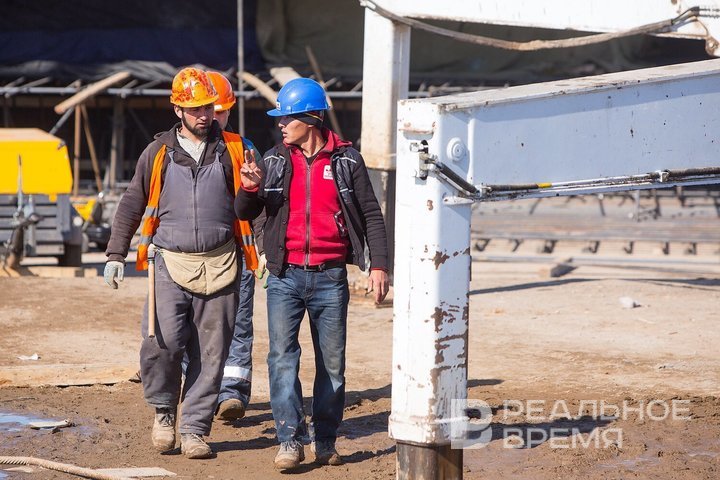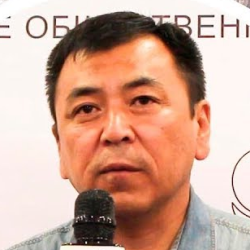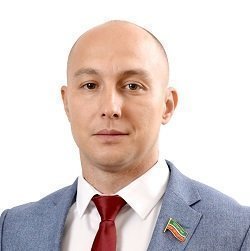‘The idea has ambiguous consequences’
The State Duma has proposed expanding the power of regions in matters of migration

A bill on expanding the power of regions in matters of regulating the residence of migrants will be introduced to the State Duma. The initiative assumes that the governments of Russian regions will be able to independently impose restrictions — for example, on the number of foreigners living in one apartment, or determine the required level of knowledge of the Russian language. Experts interviewed by Realnoe Vremya reacted ambiguously to the idea: the consequences of introducing such rights for regions cannot be predicted. Read more about it in the newspaper’s report.
“Entire districts are turning into migrant ghettos”
New People faction will introduce a bill to the State Duma expanding the powers of regions in matters of regulating the residence of migrants. This was announced by leader of the faction Alexei Nechayev. The initiative will give the subjects of the Federation the right to establish their own rules that take into account the specifics and needs of the territories, TASS writes.
New People proposes to give regions the opportunity, for example, to limit the number of migrants living in one apartment, or to introduce requirements for a minimum knowledge of the Russian language.
“While governors do not have such power, entire districts are turning into migrant ghettos,” Nechayev whose words are quoted by the faction's press service emphasized.

The parliamentarian recalled that the faction had previously developed an initiative to set quotas for the resettlement of migrants in districts.
“It works simply. If the number of migrants exceeds 10% of the district's residents, it will no longer be possible for a working foreigner to rent housing there,” he explained.
In Tatarstan, many migrants communicate with locals in their own languages without an interpreter
The bill needs to be finalized and several details clarified, Zakir Sariyev, editor-in-chief of the newspaper Labour Migrant, expressed his opinion in a conversation with Realnoe Vremya. He noted that the effectiveness of the idea depends on the direction of the regions' powers:

At the same time, Sariyev sharply criticized the idea of limiting the number of migrants living in one apartment, saying that it is ineffective and violates the rights of apartment owners.
“How do they want to determine how many migrants live in one apartment? According to the Ministry of Internal Affairs? This will be incorrect data, since every second migrant does not live at the place of registration — this is also typical for Russians. In addition, control over migrants living in an apartment limits the rights of the owner, he explained his position.”

Sariyev added that at the moment, not every owner is ready to register a foreigner and the authorities cannot influence this. In his opinion, work should be carried out in this direction:
“I understand that we really do have entire ghetto areas with migrants. But we need to work with those who rent them housing, and not with foreigners. Now they punish migrants who are not registered, but this does not happen at their request. Because of this, another problem arises — scammers who offer registration. The Ministry of Internal Affairs has even more work, but it is necessary to work with the root of the problem — the owners.”
A similar situation is with employers — they also sometimes refuse to formalize an employment contract with foreigners. Because of this, it becomes difficult to track and control the activities of migrants.
“Whether this is good or bad is a difficult question”
Another Realnoe Vremya expert, deputy of the 7thState Council of Tatarstan Eduard Sharafiyev also spoke about the ambiguity of the idea:

Nevertheless, he is sure: migration policy needs to be tightened. However, Sharafiyev, agreeing with Sariyev, clarified: it is necessary to work with employers. They must bear full responsibility for foreigners during their stay in Russia. Sharafiyev cited Alabuga SEZ as an example of well-organized work with migrants. There, according to him, foreigners are “under the tight control of the employer.”
“At the same time, a strict ban should be introduced on the import of family members of migrants. They must work here and leave. They should not have any other rights. Another point that, in my opinion, is reasonable. If we absolutely cannot do without migrants, then it is better to expand the organized import of the same North Koreans than Central Asians. North Koreans are organized, hardworking and controllable, there is no crime on their part, there will be fewer problems with them,” the deputy believes.